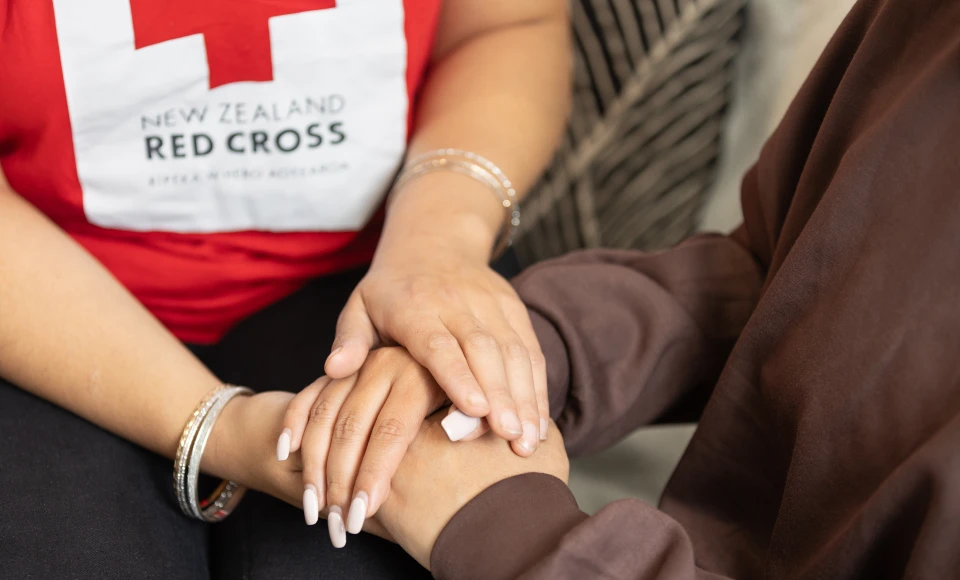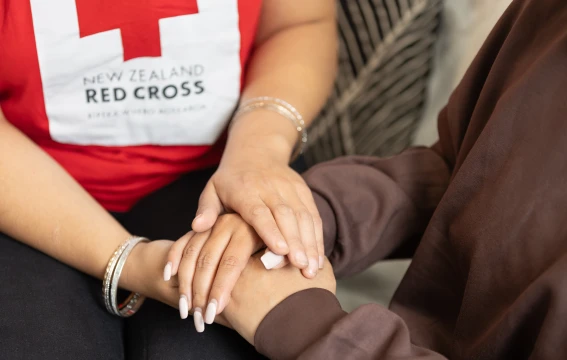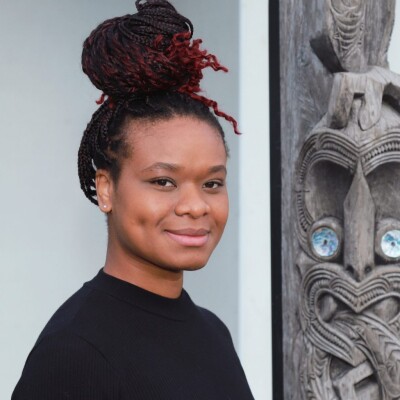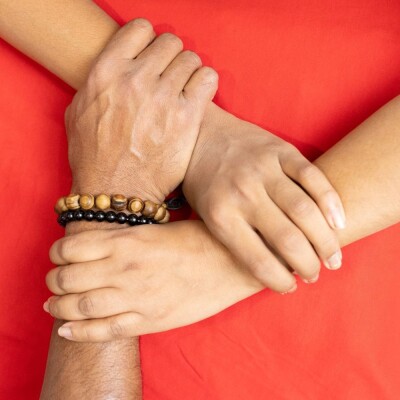Recovering and rebuilding a life in Aotearoa New Zealand
5 November 2025


When Ingrid Viafara Liu arrived in New Zealand in 2018, she brought with her more than a suitcase. She carried years of resilience marked by hardship and a dream to build a new life filled with opportunity and peace.
She hoped to leave behind the instability and fear that had followed her across borders and years. What she did not expect was how much courage and healing she would still need to rebuild her life in Aotearoa New Zealand.
Ingrid is now a proud university graduate with a degree in Political Science and International Relations. She works as a teacher’s aide and is determined to become a primary or intermediate school teacher. But her journey and the road to recovery hasn’t been easy.
A new beginning, but with challenges
Ingrid’s journey to Aotearoa New Zealand started with one simple goal: safety. After growing up in a country affected by decades of conflict and displacement, she was forced to leave behind her home, family, and sense of stability more than once. Seeking safety, she spent time in Ecuador before being offered resettlement in Aotearoa New Zealand as a quota refugee.

Ingrid Viafara Liu
While the move brought relief, Ingrid quickly discovered that starting over in a new country came with many challenges. “I didn’t speak English when I arrived. Even simple things like asking where the supermarket was or paying a power bill felt impossible,” she remembers.
With those initial challenges, she stayed positive. Her dream of pursuing higher education motivated her to study English for two years. Later, she completed two degrees in Political Science and International Relations, all while working part-time to support herself.
Along the way, Ingrid faced moments of isolation and discrimination. Ingrid had settled in Wellington, and was adjusting to her new life when an incident in her neighbourhood triggered painful memories from the past. One evening, she and her friends were verbally and physically harassed by a group of young people while waiting at a bus stop. The experience left her feeling shocked, frightened, and retraumatised.
She stopped feeling safe in her own neighbourhood. Even walking to buy food became difficult, as it meant passing the same bus stop. “I started to lose weight, I couldn't sleep, and I didn’t want to be around anyone,” she says.
She found it difficult to connect with others.
Finding safety and support
It was during this difficult time that Ingrid was referred to our Refugee Trauma Recovery (RTR) service. At first, she was hesitant. “I wasn’t confident in people anymore. I just wanted to be alone,” she says. But her experience with RTR became a turning point.
“The RTR team was welcoming, respectful, and made me feel safe,” she shares. “And that’s the most important thing for someone recovering from trauma.”
Ingrid heard inspirational stories of recovery that motivated her to keep going. Her therapist also encouraged her to join a local football club. This helped her rebuild her confidence and reconnect with her strength through movement and teamwork.
"The RTR team and therapist became a trusted guide. The team offered both professional care and a deep understanding of my needs. They helped me step out of the house again. They knew when to listen and when to gently push me forward.”
Ingrid Viafara Liu
“Soccer became part of my therapy,” she says. “It helped me release stress and made me feel stronger physically and emotionally.”
These layers of support made a real difference in Ingrid’s daily life. Her mental health began to improve, her sleep returned, and she felt more capable of focusing on her future. “I started to see the world differently. I felt calmer, more motivated, and ready to keep going,” she says.
Looking ahead with hope
Now, Ingrid is thriving. She works as a teacher’s aide and is preparing to take the next step toward becoming a qualified teacher. She has now achieved the goals she set for herself: learning English, attending university and working with children.

Hands gently held together, symbolising connection and unity.
Reflecting on her journey, Ingrid is proud of how far she has come and is grateful for the support she received along the way. “RTR helped me let go of the fears that were holding me back. I could finally focus on building a future,” she says.
To others who may be struggling silently, Ingrid has a message: “You don’t have to carry it all on your own. Even the strongest people need help sometimes. Talking to someone doesn’t make you weak—it helps you heal.”
She also hopes that more people in Aotearoa New Zealand understand the importance of trauma recovery for refugees. She encourages all New Zealanders to understand the difference between migrants, who leave their homes with choices in search of a better future, and refugees. “Refugees don’t leave our homes by choice—we leave to survive. And when we arrive, we need more than housing or a job. We need mental health support to truly rebuild our lives again,” she says.
For many former refugees like Ingrid, the journey doesn’t end at resettlement. Refugee Trauma Recovery Clinical Lead, Nithya Ratnayake says, resettlement itself can also be traumatic, as even simple challenges in a new country may trigger past feelings of fear and disempowerment.
“Former refugees carry the weight of choices most people will never face. To protect their families, they leave behind their homes, their memories, and their sense of belonging, all in search of a place where they can stay alive.”
More information
Our specialist refugee mental health service offers culturally safe mental health care to help refugees, former refugees and their whānau (families) address experiences of trauma, whether experienced before or after arriving in Aotearoa New Zealand.
Specialist refugee mental health services
Header image: Red Cross volunteer providing support and care with a comforting gesture. Photographer: Paul Petch.
